Why Peruvians are taking to the streets in protest
The South American country has been thrown into turmoil following the ousting of its president

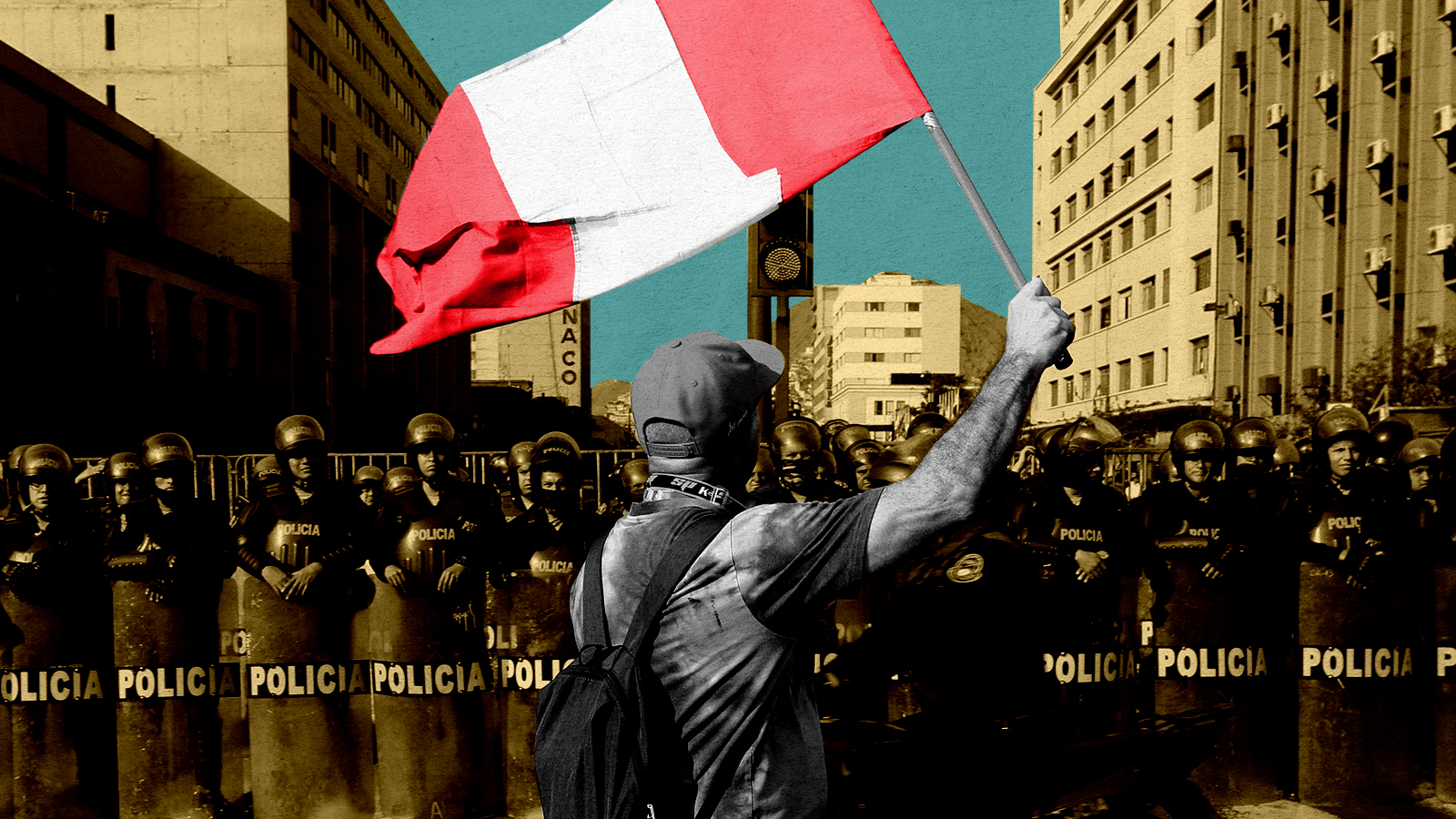
A free daily email with the biggest news stories of the day – and the best features from TheWeek.com
You are now subscribed
Your newsletter sign-up was successful
The political situation in Peru is becoming increasingly volatile after the nation's president, Pedro Castillo, was ousted amidst a constitutional crisis. And Castillo's replacement has already given in to some demands as a result of violence requiring a militarized response. Here's everything you need to know:
What triggered the political turmoil?
It all happened in record time — Peruvian President Pedro Castillo went from being his country's commander in chief to a disgraced prisoner over the course of a day.
The turmoil stems from a number of impeachment inquiries against Castillo, which began gaining traction at the end of 2021. Opponents of Castillo, who had been in office since July of that year, argued that he was corrupt and unfit for office following a number of federal investigations. While there was significant backing in the Peruvian legislature to impeach Castillo, the inquiry ultimately fizzled out. Another impeachment inquiry was opened in March 2022, and while this inquiry actually made it to official proceedings, there were once again not enough votes to impeach Castillo.
The Week
Escape your echo chamber. Get the facts behind the news, plus analysis from multiple perspectives.

Sign up for The Week's Free Newsletters
From our morning news briefing to a weekly Good News Newsletter, get the best of The Week delivered directly to your inbox.
From our morning news briefing to a weekly Good News Newsletter, get the best of The Week delivered directly to your inbox.
It appeared for a while that Castillo may have escaped punishment. That began to change, though, when Congress attempted to impeach him for corruption-related charges a third time in early December. On the day when Congress was scheduled to vote on the charges, Castillo shocked Peru by announcing he would move to completely dissolve the legislature and rule the country "by decree."
However, as NPR noted, Castillo "had no constitutional authority to do so and, as swiftly became clear, zero support from the armed forces." This likely became obvious to him when numerous government officials began resigning and the nation's high court declared his intentions illegal. By the end of the day, Castillo had been arrested and removed from office. Vice President Dina Boluarte was sworn in as his successor on Dec. 7, becoming the first female president of Peru.
Why are people taking to the streets?
Following Castillo's ousting, protests have swelled across the country, including in the Peruvian capital of Lima. The Associated Press reported that hundreds of angry citizens clashed with law enforcement in the days after Boluarte became president. The protests quickly turned violent, and at least seven people have died with at least another 20 having been injured.
But what are they protesting for? The majority of those taking to the streets are demanding the resignation of Boluarte and the release of Castillo from jail. Axios noted that many protesters were seen in rural areas, where Castillo — who grew up impoverished in one of the country's poorest regions — maintains a significant base of support.
A free daily email with the biggest news stories of the day – and the best features from TheWeek.com
In addition to demanding Castillo's release, the protesters have also called for a wave of new elections to be held as soon as possible, arguing that Boluarte's advancement to the presidency did not represent the will of the people. Many of the calls for new elections were levied with the goal of trying to fix Peru's ongoing political turmoil — Boluarte is now the country's seventh president in as many years.
In response to the ongoing violence, Boluarte declared a state of emergency throughout Peru on Dec. 14. It was reported that the military had been deployed to some of the most widely protested areas in order to assist local law enforcement with quelling the violence. Boluarte's government has also suspended the rights to "personal security and freedom" for at least the next 30 days as a quasi-martial law takes effect. This declaration suspends the right of the people to assemble, as well as the freedom of movement. It also allows the police to search people's homes without a warrant.
Further, the protests have shone a spotlight on one of the national symbols of Peru: Machu Picchu, the ancient Inca citadel that has become one of South America's most popular tourist attractions. As the deadly unrest continued, reports emerged that hundreds of sightseers, including some Americans, were trapped at Machu Picchu after protesters reportedly blocked train tracks into the city and cut off tourists' only exit. However, the Peruvian government has since begun evacuating tourists, and said that trains were resuming service to Machu Picchu on an emergency basis.
What are the new president's long-term plans for Peru?
A change of pace, to start with, in a desperate attempt to calm the nation. Following her swearing-in, Boluarte, who has refused to resign, initially said she had no intention of moving up any elections, telling journalists, "I know that there are some voices that indicate early elections and that is democratically respectable. I believe that the assumption of the presidency on this occasion is a bit of a reorientation of what must be done with the country."
However, her tune changed as the protests grew decisively bigger and more deadly. Boluarte has now pledged to move the country's national elections up from 2026, when Castillo's term would have ended. "I have decided to present a bill to reach an agreement with Congress to bring forward the general elections to April 2024," she said in a nationally-televised speech.
Prime Minister Pedro Angulo said Boluarte's newly appointed Cabinet was also meeting to try and devise a plan of action, in an effort to avoid any further violence.
"I have given the instructions so that control of internal order can be recovered peacefully, without affecting the people's fundamental rights," Bolurate said at the time, though it seems that Peru is already beyond this point.
What's next?
The political powder kegs come as Peru continues to face a number of societal problems. As Al Jazeera notes, recent polls show that nine out of 10 people disapprove of the country's legislature. The country is also facing a massive uptick in COVID-19 cases, and subsistence farmers across Peru are continuing to battle one of the worst droughts in years.
So the timing of this political scandal is, to say the least, not the greatest. Beyond this, simply removing Castillo will not eliminate the corruption that has plagued Peru. "It was like a season finale," political scientist Gabriela Vega Franco told The New Yorker. "One actor didn't have his contract renewed, and it will be a while until we figure out who the new protagonists are."
As tempers flare, it seems that Castillo doesn't plan on going away quietly, either. Following his ousting, the ex-president wrote in a handwritten letter posted on Twitter that he had been "humiliated, [kept] incommunicado, mistreated and kidnapped, but still clothed with your trust and struggle."
"I speak to you to reiterate that I am unconditionally faithful to the popular and constitutional mandate I ostentatiously hold as president, and I WILL NOT RESIGN OR ABANDON MY HIGH AND SACRED FUNCTIONS," Castillo added. "What was said recently by A USURPER is nothing more than the same snot and drool of the coup-mongering right. Therefore, the people should not fall for their dirty game of new elections."
Update Dec. 19, 2022: This article has been updated with new information throughout.
Justin Klawans has worked as a staff writer at The Week since 2022. He began his career covering local news before joining Newsweek as a breaking news reporter, where he wrote about politics, national and global affairs, business, crime, sports, film, television and other news. Justin has also freelanced for outlets including Collider and United Press International.
-
 The ‘ravenous’ demand for Cornish minerals
The ‘ravenous’ demand for Cornish mineralsUnder the Radar Growing need for critical minerals to power tech has intensified ‘appetite’ for lithium, which could be a ‘huge boon’ for local economy
-
 Why are election experts taking Trump’s midterm threats seriously?
Why are election experts taking Trump’s midterm threats seriously?IN THE SPOTLIGHT As the president muses about polling place deployments and a centralized electoral system aimed at one-party control, lawmakers are taking this administration at its word
-
 ‘Restaurateurs have become millionaires’
‘Restaurateurs have become millionaires’Instant Opinion Opinion, comment and editorials of the day
-
 10 things you need to know today: October 22, 2023
10 things you need to know today: October 22, 2023Daily Briefing Israeli planes strike Gaza and West Bank as war intensifies, US pressing United Nations to draft Israeli self-defense resolution, and more
-
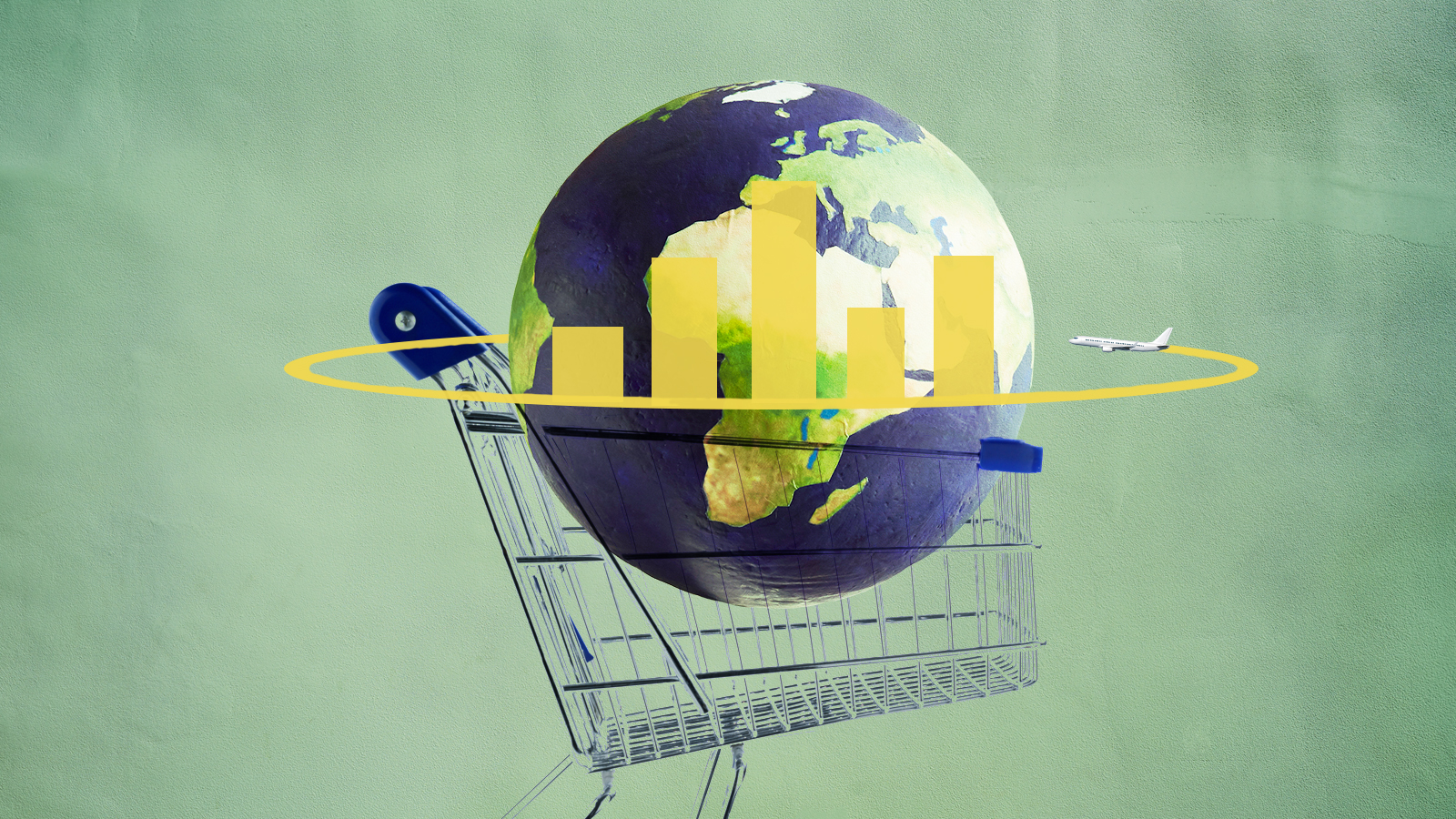 Is the 'vibecession' over?
Is the 'vibecession' over?Speed Read The IMF reported that the global economy is looking increasingly resilient. Is it time to start celebrating?
-
 The U.S. veterinarian shortage crisis
The U.S. veterinarian shortage crisisSpeed Read With an anticipated shortage of 15,000 vets by 2030, it will be harder to get care for pets
-
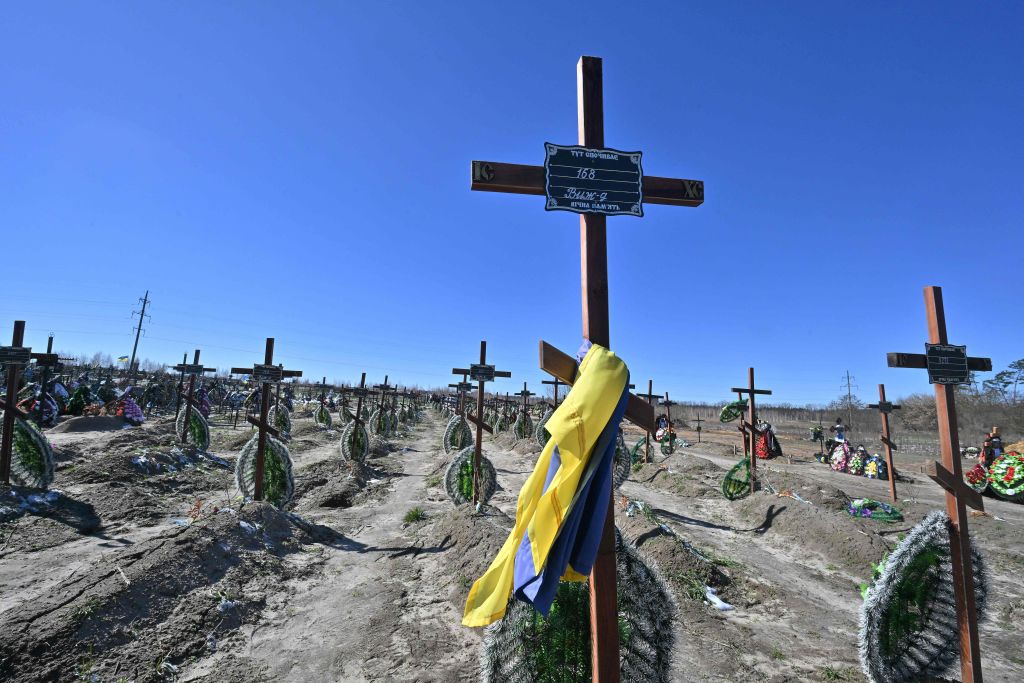 Inside Russia's war crimes
Inside Russia's war crimesSpeed Read Occupying forces in Ukraine are accused of horrific atrocities. Can they be held accountable?
-
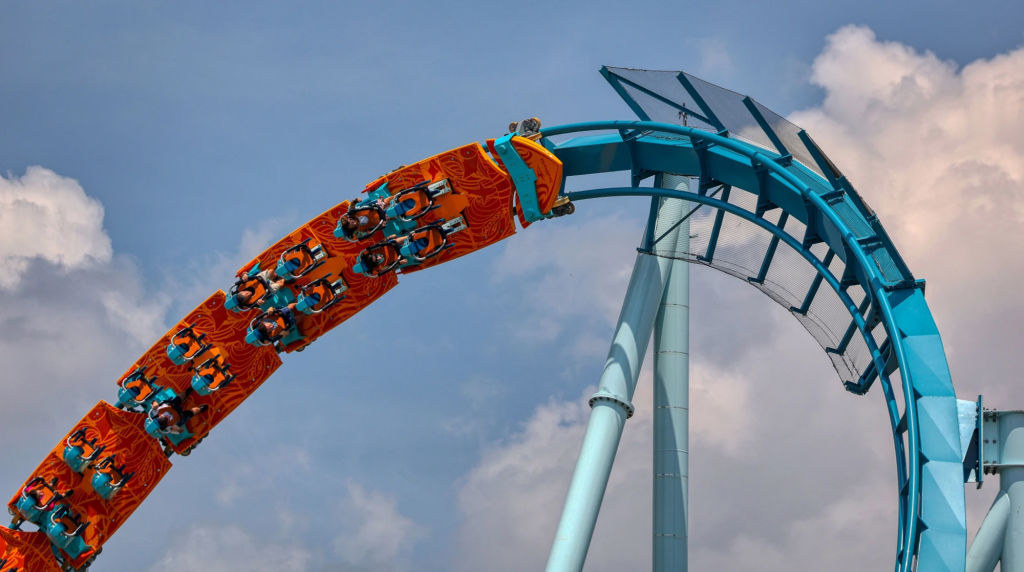 Is it safe to ride a roller coaster?
Is it safe to ride a roller coaster?The Explainer A pair of startling events have shined a light on amusement park safety
-
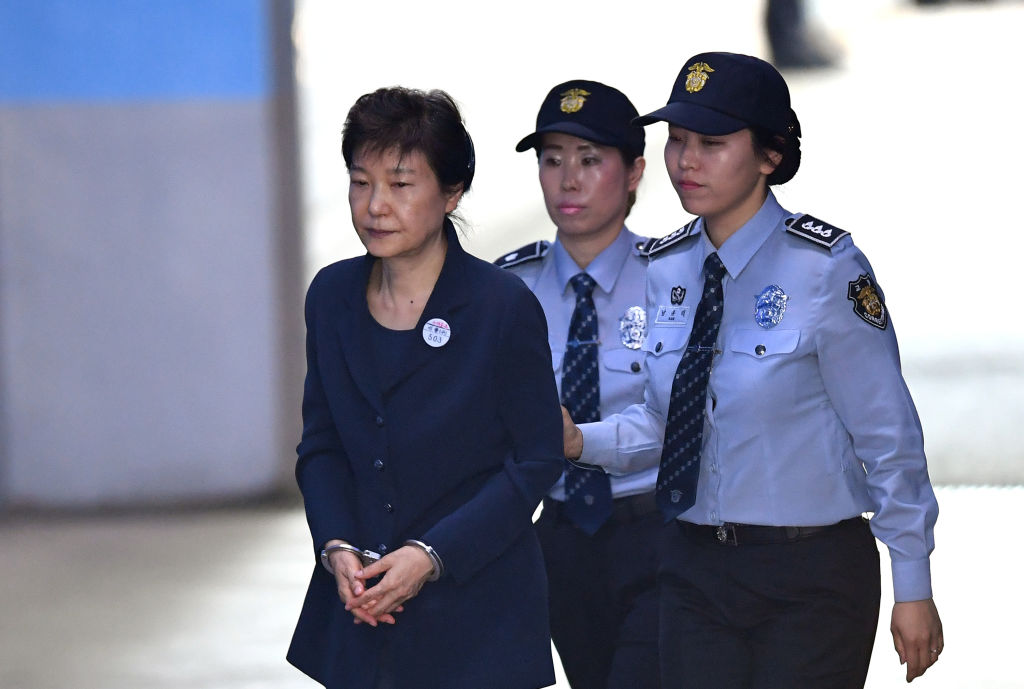 World leaders who have been charged or imprisoned
World leaders who have been charged or imprisonedThe Explainer Heads of state being put behind bars is not a rare occurrence
-
 The China-Cuba connection, explained
The China-Cuba connection, explainedSpeed Read Reports of an eavesdropping deal roil Washington
-
 Teen who survived Colombian plane crash told family mom lived for 4 days
Teen who survived Colombian plane crash told family mom lived for 4 daysSpeed Read
